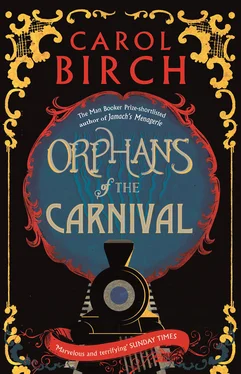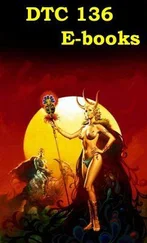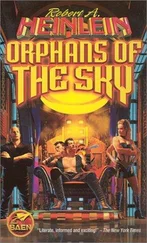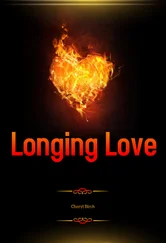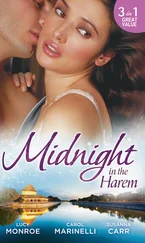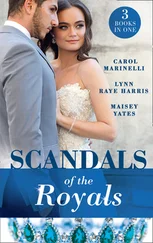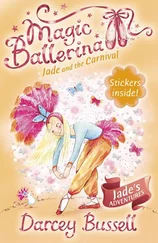‘Ah yes, to Karlsbad,’ said Otto. ‘And what do you intend to do there?’
‘Oh I’m not staying there.’ She straightened the veil above her thick black brows. ‘I’m just going to see the old place and then — well, I’ll take my son to Paris. It’s a place I’ve always wanted to see. I’d like to buy a house and retire.’ She reached for her wine. ‘My husband left me very comfortable, you know. We had a successful business in the centre of Petersburg. You knew him quite well, I believe?’
‘Reasonably. So very sorry to hear of his misfortune.’
‘His death, you mean,’ she said. ‘Yes, a tragedy. Five years now! My goodness. Time!’
A brain fever, he’d heard.
‘Will you miss them?’ he asked.
‘Julia? Baby?’ She looked down, considering. ‘I will,’ she said after a while, ‘but I won’t be sorry to see them go. It’s time.’ She smiled. ‘And I certainly won’t miss those long Petersburg winters.’
Otto wished her luck and went on his way. In the main display area the rain was a tattoo on the canvas. The flap was open. The grass shone, the lights were yellow. She’d thrive, he thought. Probably get another man. She could. Fine figure of a woman in her way. Poor old Lent. Always something fishy about the man. That simpering smile.
Marie sat on for half an hour making small talk with Gassner, picking with her long manicured nails at a pastry and nibbling delicately. Then she had a carriage brought to the side entrance. But first, she took a last farewell of Julia and the boy. She could hardly look at Baby, the sight of his pretty chin made her too sentimental. So she looked at Julia, grand old thing, still standing proud and defiant. They’re not keeping up very well with her hair, she thought, and was almost tempted to pop in and give it a quick brush-up, a little readjustment here and there. But no, all that was past.
‘Bye, Sister,’ she said and marched away straight-backed to where her cab was waiting.
The grinding of carriage wheels on a million roads. The man with the money, first one man then the next, and the next; the men who stand at the entrance and call in the crowds that jog by in a choppy ever-changing sea, all grinning and gazing and wondering, avid for mysteries, drifting from the glass cabinet to the two-headed baby floating in a jar, to the waxwork of Robespierre losing his head. Germany, Holland, Belgium, Vienna where life had been good, where one night when the show was just about over and everyone was getting ready to close up, three last-minute people came in through the open tent flap. A well-preserved woman of about fifty held the hand of an ageing pinhead in a long blue raincoat.
‘There,’ said the portly older man with a fine shock of curly grey hair. ‘Over there, Niece.’
‘Cato, don’t pull,’ said Berniece, dragged unceremoniously across the grass to stand in front of Julia’s cabinet. ‘God, Ezra,’ she said, ‘now I wish I hadn’t come.’
Ezra came to loom behind them, gazing solemnly, remembering seeing Julia for the first time across the yard in New Orleans, how he’d thought, God, God, impossible, even though he’d been warned.
‘Hoo-hah,’ said Cato in a soft, puzzled tone.
Berniece put her arm round his shoulder and pulled him close.
‘Yes,’ said Ezra, ‘it’s Julia.’
‘He remembers,’ said Berniece.
‘Of course he does.’
‘I liked her, you know,’ said Berniece.
‘Baby,’ said Cato, pointing.
They stood in silence.
‘Oh! He’s crying,’ said Berniece.
Tears were pouring down Cato’s old face. She got out her hankie and wiped his eyes. ‘Oh, those eyes of yours, Cato,’ she said.
Budapest.
Krakow.
East and east again to skirt the Russian border. Twenty years, and somewhere along the line Julia and Theo Junior acquired a grand Russian carriage, with velvet and ruching. Back and back and back it carried them, very far, though time of course no longer existed. Years, no more than circles in water. There were oceans and the roaring of waves and weather. Over and over, light, dark, high summer, bitter skies, snow, rain dripping on a puddle, circles, a dark rattling community of pickled curiosities, abnormalities, fakes, freaks, things of no provenance. More years, more roads. The shriek of a train. Ten years of Norwegian byways. Darkness moving on, progressing through something. Could have been a swamp, a birth canal, a long dream. Wars, rumours of wars. And the men and women, their faces changing like the faces on the closed canvas of a half-awake eye. A banner over the entrance to the tent read: Humanity, Know Thyself.
The business had been falling off for years. A couple of times they opened up and no one came. Blame it on the war. Her glass eyes stared at the wall in a loft in Sweden as the war passed.
Years, creeping slowly by, nibbled by moths, her hair straight and lank, the flowers and feathers long gone. The boy tipped sideways. Someone dusted her off, set the boy straight, rattled them back to Norway on a diesel train and hauled them round on tour again. In a garage in Oslo a spider made its home in the boy’s hair. Someone somewhere took Julia’s pearl cross and replaced it with a cheaper version, because it made no sense for such a pretty thing to languish on the neck of a corpse. Once in the far frozen north they were delayed for a few days by weather, and the young daughter of the woman who kept the showground came in every day and talked to the boy as if he were a doll. He did look like a doll. His eyes were always open, his face always surprised. In Malmo, the cabinet was dropped as it was being moved and a big crack appeared up the back of it. No one fixed it, and they were on the road again but the crowds were thin. A trickle.
Ten more years of fabric fading, of varnish chipping, seams fraying, fabric fading.
Ten more in storage.
There’s no call for it any more. Really, in this day and age.
Try America. But the ocean changed nothing, it was just the same there, roads, trains, midways, boardwalks. And back across the ocean, third time, to the north, the snow.
There was a warehouse in Oslo full of old fairground stuff. She ended up there with her baby and her Russian carriage, with half a dozen go-karts, a few tarnished bumper cars and all the crew: the phrenological heads, the Anatomical Venus, the piglet Cyclops, the pregnant hairless six-footed rat, and a dusty jar with two sleeping faces at peace, side by side, scarcely discernible these days through the yellowish glaze of grime.
One night, four boys came up to the old industrial estate from the high-rise flats nearby. They fooled about for a while, riding their bikes round the padlocked units, chucking cans of coke into the weeds growing thickly between them, till one of them, taking a piss in front of an old lock-up with boarded-up windows, saw that the corrugated metal that covered the door had rusted away at the bottom where it met the grass. He zipped up, hunkered down and pulled at it. Rust fell into the grass and the strip of metal started coming away from the rotting wood behind.
‘We can get in!’ he called out.
His friends leaned their bikes up against the concrete wall and gathered round. It only took a few minutes to rip the metal away and expose the old doors, which weren’t even locked but only tied together with a bit of wire. The darkness inside made them pause on the threshold, daring themselves silently to go in. One of them took a torch from his saddle-bag and bravely led the way in, the others keeping close. The light shone on boxes and closed crates, hulking shapes. Further in—
‘Go-karts!’
‘Must have been a fair. Look. Dodgems.’
The light wandered.
‘Let’s take them out.’
‘What? The karts?’
Читать дальше
